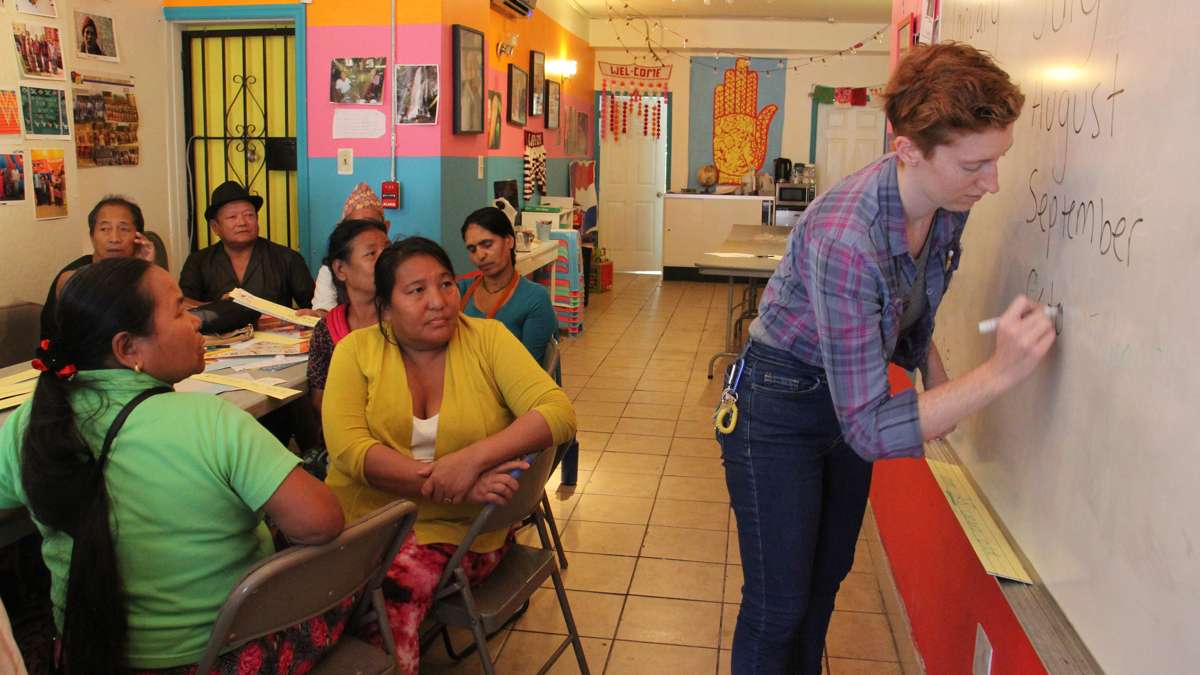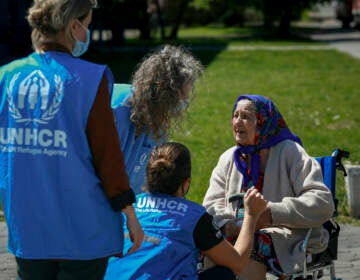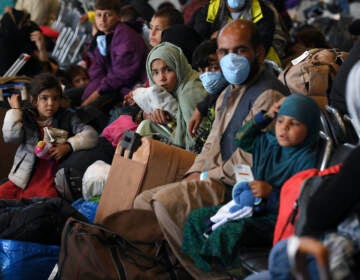Refugee elders support each other after a long, difficult journey
Naw Gay Lay is a 77-year-old Burmese refugee living in South Philadelphia. When she reached her mid-30s, her whole village had to flee military insurgents.
Naw Gay Lay (not pictured above) is a 77-year-old Karen refugee. The Karen people are an ethnic and religious minority group in Burma, also known as Myanmar. Karen consider their homeland to be Burma, not Myanmar, whose government has persecuted them through much of the country’s history and does not accept them as citizens.
As a young woman, Gay Lay worked in a rice field and began raising her family in a rural village in central Burma. When she reached her mid-30s, the whole village had to flee from Burmese military insurgents. She lost her husband in this brutal civil conflict and was forced to live in the jungle with her six children for many years, hiding from the Burmese soldiers.
Survival, resilience
Eventually, the family arrived at a refugee camp along the Thailand border in 2001. She was already in her early 60s by then. “Whole my life, I had to run away with my family in the jungle, until I got to the camp,” she recalls.
After spending more than 10 years at the under-resourced refugee camp, Gay Lay and her family were presented with an opportunity for resettlement in the United States. With support from a local refugee resettlement agency, she and her family started a new life in Philadelphia in July 2010.
“My family, they needed my help, so I came to the States,” says Gay Lay. “It was difficult first, but I am adjusting and trying to learn everything in my new life.”
Despite the unthinkable life challenges she experienced, Gay Lay demonstrates unwavering resilience with an ongoing sense of hope. “Right now I am improving my English, and I am happy for that,” she says. “I want to go out. I want to see new things. Because I survived my life in the jungle, I have experience. I can find a way and figure out.”
Gay Lay currently lives with her daughter and two grandchildren in South Philadelphia. She has a total of 18 grandchildren. Her other children live in different places in the States, so she often travels to visit them and care for her grandchildren.
Active aging, positive memories
To address the unique needs of elderly refugees and connect them to one another, Philadelphia Refugee Mental Health Collaborative started its refugee senior program at the Southeast by Southeast Community Center in the fall of 2013. Karen elders get together every week and participate in a range of recreational activities, including arts and crafts, baking, and singing.
Gay Lay plays an active role in this program. She calls and encourages other seniors who are hesitant to come out. She escorts them from their homes to the community center by walking with them. Believing that productive activities promote the wellbeing of refugee elders, she asserts, “I want my friends to get opportunities to learn. Because in Burma and at the camp, we worked every day — farming, collecting wood for cooking — so we stayed happy. But not here. They do not feel happy [because they are not active enough].”
Learning English is a major challenge for many adult Burmese refugees, especially because they did not have any formal literacy education in rural Burma, nor at the camp. Therefore, Gay Lay says she is grateful that the community center offers English class. She also stresses the challenge of maintaining their native language, Karen. As the younger generation picks up English and adjusts to American culture quickly, they are losing their native language and cultural identity.
Among all the senior program activities she participates in, Gay Lay shares that she has enjoyed learning English, baking, and craft-making the most. She points out the themes of natural beauty and wildlife that often emerge in their activities. Painting colorful flowers and creating farm animals with Play-Doh have revitalized their spirits by enabling them to reminisce about the stability of their former lives in rural Burma.
“In Burma when we were little, we played with clay. In this program, we used Play-Doh and made animals — like a cow, a water buffalo,” says Gay Lay. These animals are familiar and comforting to the Karen seniors because they grew up with them and miss seeing them, she explains. “One person, he drew an elephant in a field, saying, ‘This is my elephant.’ That’s his memory,” she continues. “I drew chickens, roosters, and chicks. We miss that time, seeing different animals, insects. We remember.”
Revitalizing positive memories from the past and tapping into their strong sense of cultural heritage are crucial to foster refugee seniors’ sense of well-being. By encouraging seniors to come out of their houses and to share images and stories from their native countries through various artistic projects, active elders like Gay Lay along with staff members at the Southeast by Southeast Community Center are facilitating culturally relevant activities that improve refugee elders’ mental and emotional health.
—
This story was compiled by Hitomi Yoshida with support from Naw Doh, Shira Walinksy and Melissa Fogg, members of the Southeast by Southeast Community Center. The original interview was conducted by Yoshida in the summer of 2014, and the contents were edited and verified in April 2016.
WHYY is your source for fact-based, in-depth journalism and information. As a nonprofit organization, we rely on financial support from readers like you. Please give today.








